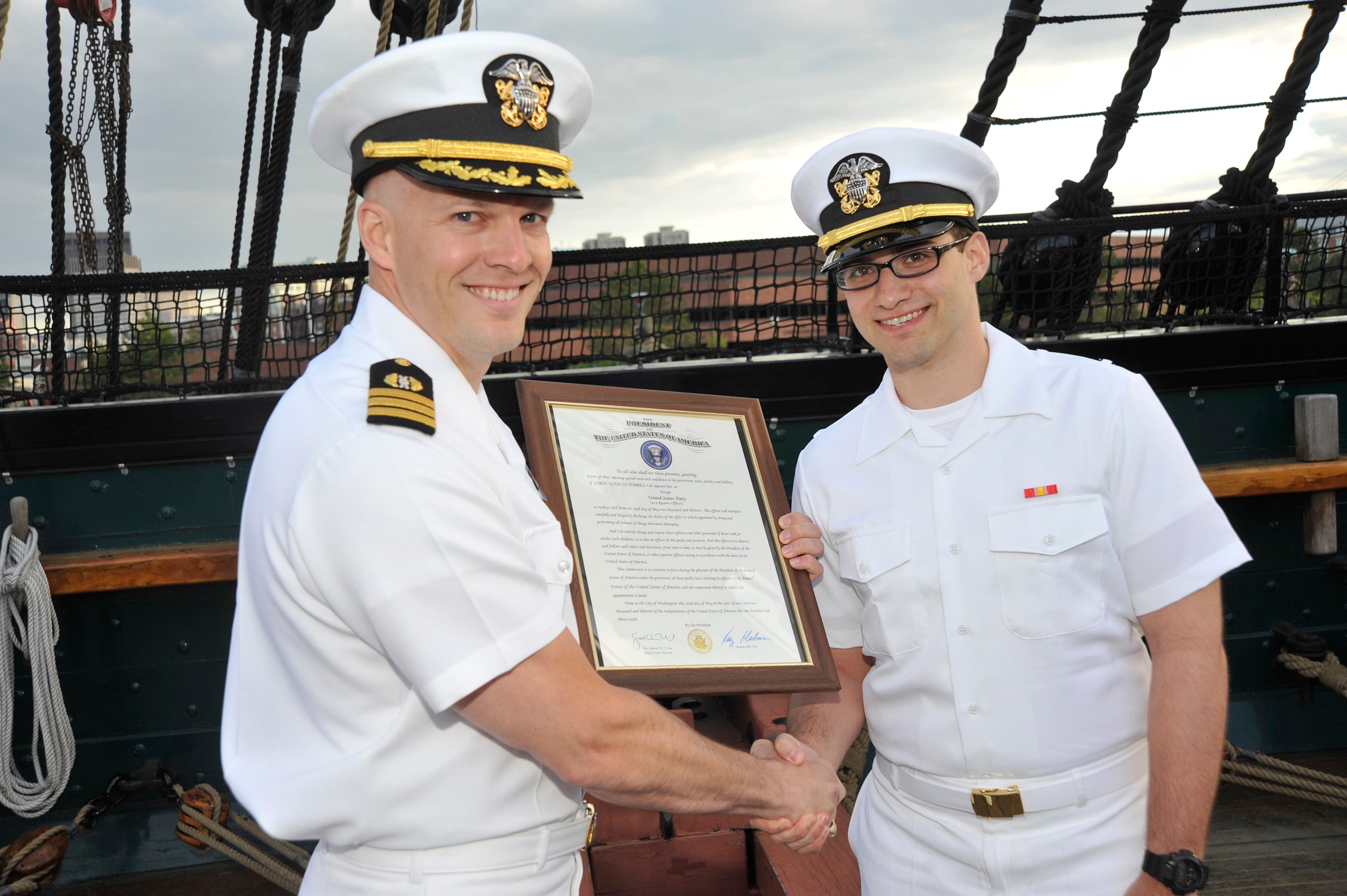Jordi Torres ’13 got his first taste of advocacy work as a high school student, defending other young people in Teen Court, an alternative justice system for juveniles accused of minor offenses in Pinellas County, Florida.
Torres, who grew up in Puerto Rico, Florida, and Louisiana, says he has few family connections to the law. Despite that, his experience volunteering with Teen Court showed him that a legal career in public service might be right for him.
“Growing up, I had not really been exposed much to what lawyers did,” he says. “That experience was my one entry point, and I really liked it. I realized I enjoyed representing people in court and arguing for them. I thought I might someday want to go to law school.”
Later, as an undergraduate at Brown University, Torres explored another talent of his — writing — and earned a degree in comparative literature and literary translation. But his thoughts kept drifting back to law school, and to public service.
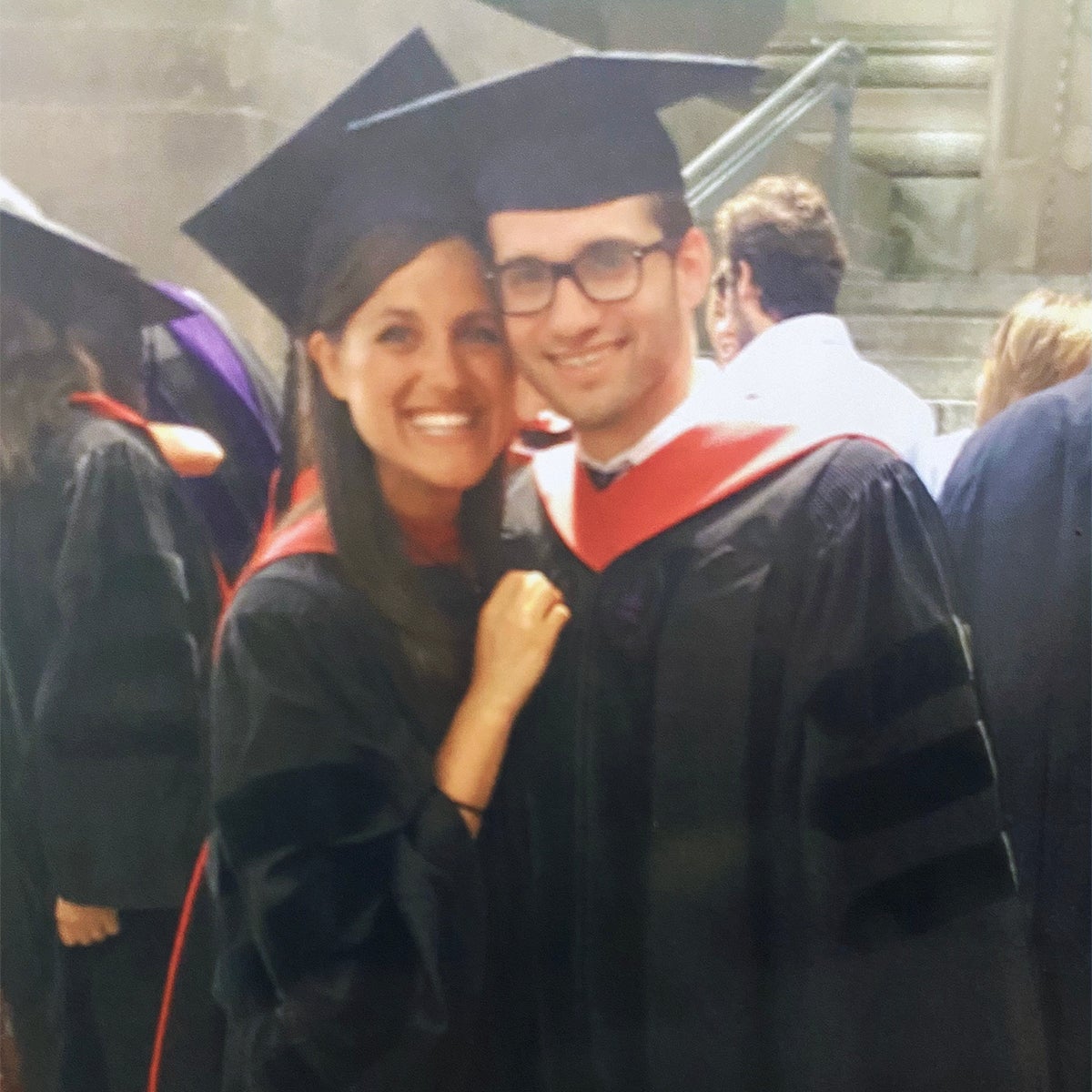
Torres applied, and was accepted, to HLS and a few other law schools, and says he considered his options carefully. He knew law school could be expensive, yet lucrative. But what about for someone interested in public service work?
Then he learned about Harvard Law School’s Low Income Protection Plan (LIPP). LIPP, the first program of its kind in the United States, helps graduates pursue jobs in lower-paying government or public service careers by reducing their student loan burden and payments. For Torres, LIPP made all the difference.
“I knew that the kinds of careers I was interested in paid a lot less than some firm jobs I could get,” he says. “I had scholarship offers at other law schools, and I was aware that I would have to take out more money if I came to HLS. But knowing LIPP was an option, that it could allow me to take whatever job I wanted to after graduation – that was the reason I chose Harvard Law School. I knew I could pursue my own interests and desire to be in public service. LIPP really was the key factor in deciding what jobs to apply to, and what jobs to take, because I knew I was going to be able to afford to repay my loans.”
As a first-year student at HLS, Torres worked with the Harvard Defenders, representing low-income criminal defendants in Massachusetts. For two years, he was also a member of the Harvard Legal Aid Bureau (HLAB), a student-run legal services organization, in the family law section.
“That was probably the most formative, interesting, rewarding part of my Harvard law school career,” Torres says of HLAB. “That really was my HLS experience in many ways.”
Torres also worked on the Harvard International Law Journal, which exposed him to global perspectives on the law. It made him think more deeply about what he wanted out of his career after graduation. “I had this thought that I might want to join the military,” he says. “I think I imagined myself as one of those people at Nuremberg, prosecuting war crimes.”
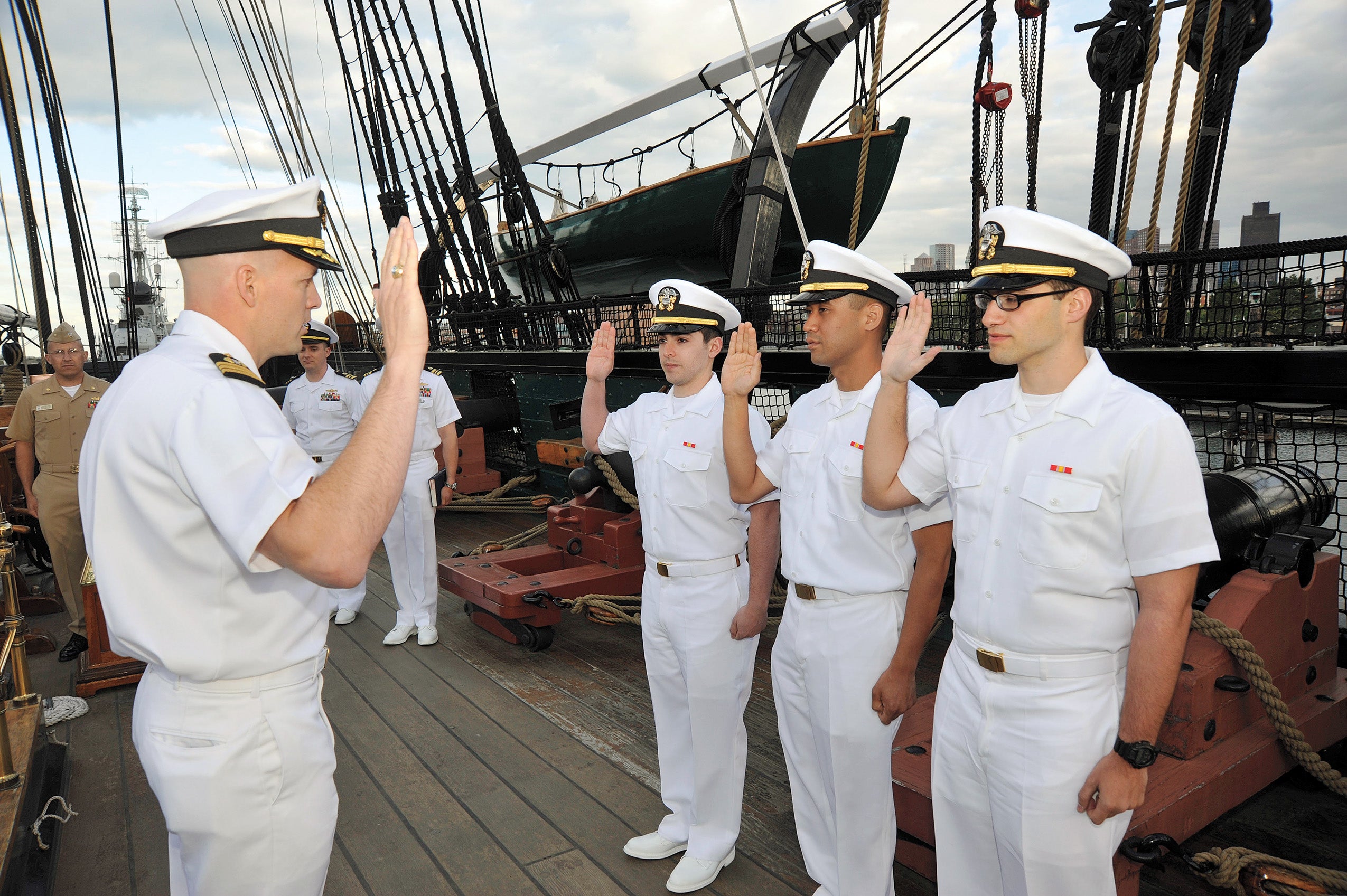
Jordi Torres ’13 (right) at his commissioning ceremony onboard the USS Constitution in 2013.
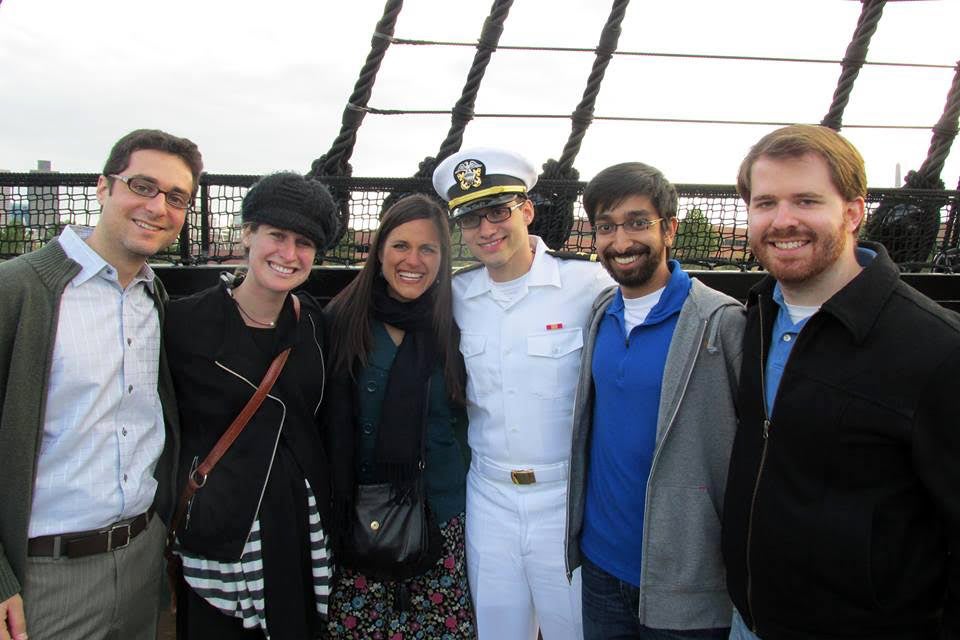
Torres with several Harvard Law classmates.
Although Torres says neither he nor anyone in his family has a military background, he was drawn to the idea of a career that combined international law and criminal law with public service, and he found a fit with the U.S. Navy.
“We’re a country that wields a lot of military power,” he says, adding that his opinions were his own, and not necessarily representative of the U.S. Navy’s. “And yet there are very few people in the country who serve. Those who do come from all kinds of backgrounds, all over the country. I thought that it was a good chance as a citizen to learn about what military service really means and to help out those who have chosen to serve with whatever abilities I’ve got. It was sort of a citizenship exercise.”
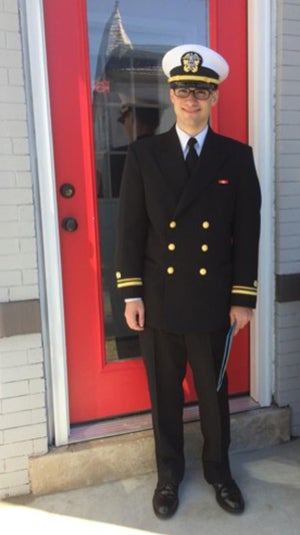
Just before graduating from HLS, Torres commissioned as an ensign in the Navy, officially joined the Judge Advocate General’s Corps. As a judge advocate, he has primarily served as a defense attorney for sailors, Coast Guard members, and Marines accused of criminal offenses in military courts. During his first assignment, he also advised a base commander, and provided legal services to individual sailors on issues related to housing law and domestic relations. He has even served as the military aide to a two-star admiral.
Torres is now in his eighth year of service, and is the deputy director of the Navy Defense Counsel Assistance Program, providing training to defense counsel around the world and helping them with their cases. He also continues to defend clients who are being court-martialed, which still takes him to bases around the globe.
“I’ve tried defense cases all over the country and the world, which has been a great part of getting to do what I do,” he says. “If I were working in a public defender’s office, I might be relegated to one or two courthouses all the time.”
Today, Torres is stationed in Washington, D.C., where his wife, Genevieve Bonadies Torres ’13, also an HLS graduate, is a civil rights attorney. He is being promoted this month to the rank of Lieutenant Commander. He is also a new father, and says he is looking forward to publishing a piece of fiction he wrote in an upcoming issue of Chicago Quarterly Review.
Torres credits HLS’ LIPP with enabling him to pursue a dream career – and a rich personal life – without worrying about how to pay back his student loans.
“LIPP has given me so much flexibility,” he says. “It’s huge.”
The views expressed in this article by Jordi Torres in his personal capacity are his alone and do not reflect the official policy, position, or endorsement of the U.S. Navy, the Department of Defense, or the U.S. Government.
